Fleurs du Mal Magazine


Or see the index
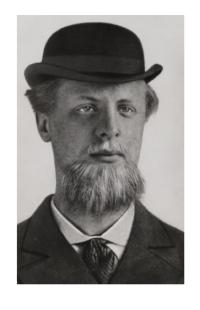
Eerste aanblik
En peinzend zie ‘k uw zee-blauwe oogen pralen,
Waarin de deernis kwijnt, de liefde droomt, –
En weet niet wat mij door mijn adren stroomt:
Ik zie naar u en kan niet ademhalen:
Een gouden waterval van zonnestralen
Heeft nooit een zachter aangezicht bezoomd…
‘t Is of me een engel heeft verwellekoomd,
Die met een paradijs op aard kwam dalen.
‘k Gevoel mij machtig tot u aangedreven
En buiten mij. ‘k Was dood, ik ben herrezen,
En voel mij tusschen zijn en niet-zijn zweven:
Wat hebt gij, tooveres, mij goed belezen!
Aan u en aan uwe oogen hangt mijn leven:
Een diepe rust vervult geheel mijn wezen. –
Jacques Perk
(1859 – 1881)
Eerste aanblik
• fleursdumal.nl magazine
More in: Archive O-P, CLASSIC POETRY, Jacques Perk
Most people outside Italy know Pier Paolo Pasolini for his films, many of which began as literary works—Arabian Nights, The Gospel According to Matthew, The Decameron, and The Canterbury Tales among them.
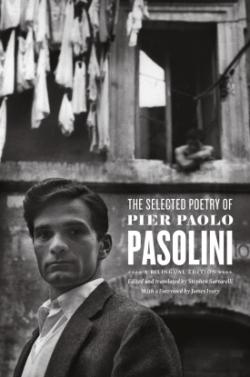 What most people are not aware of is that he was primarily a poet, publishing nineteen books of poems during his lifetime, as well as a visual artist, novelist, playwright, and journalist. Half a dozen of these books have been excerpted and published in English over the years, but even if one were to read all of those, the wide range of poetic styles and subjects that occupied Pasolini during his lifetime would still elude the English-language reader.
What most people are not aware of is that he was primarily a poet, publishing nineteen books of poems during his lifetime, as well as a visual artist, novelist, playwright, and journalist. Half a dozen of these books have been excerpted and published in English over the years, but even if one were to read all of those, the wide range of poetic styles and subjects that occupied Pasolini during his lifetime would still elude the English-language reader.
For the first time, Anglophones will now be able to discover the many facets of this singular poet. Avoiding the tactics of the slim, idiosyncratic, and aesthetically or politically motivated volumes currently available in English, Stephen Sartarelli has chosen poems from every period of Pasolini’s poetic oeuvre. In doing so, he gives English-language readers a more complete picture of the poet, whose verse ranged from short lyrics to longer poems and extended sequences, and whose themes ran not only to the moral, spiritual, and social spheres but also to the aesthetic and sexual, for which he is most known in the United States today. This volume shows how central poetry was to Pasolini, no matter what else he was doing in his creative life, and how poetry informed all of his work from the visual arts to his political essays to his films. Pier Paolo Pasolini was “a poet of the cinema,” as James Ivory says in the book’s foreword, who “left a trove of words on paper that can live on as the fast-deteriorating images he created on celluloid cannot.”
Pier Paolo Pasolini (1922–75) was an Italian film director, writer, and intellectual. This generous selection of poems will be welcomed by poetry lovers and film buffs alike and will be an event in American letters.
The Selected Poetry of Pier Paolo Pasolini
A Bilingual Edition
Edited and Translated by Stephen Sartarelli
With a Foreword by James Ivory
Format Paperback
512 pages
Dimensions 152.4 x 226.06 x 33.02mm
Publisher The University of Chicago Press
Language English
Edition Bilingual edition
ISBN10 022632544X
ISBN13 9780226325446
2015
Paper $25.00
Susan Stewart | The Nation: “An accused blasphemer deeply devoted to Franciscan Catholicism, a Gramscian communist permanently expelled from the party, an avowed homosexual dedicated to the consensual sexual freedom of everyone, a champion of the local on a global scale, a neorealist of the imagination, and a radically innovative poet alienated from the existing practices of the avant-garde: Pasolini is not so much a figure of contradictions as he is a force against the incoherence hiding in every hypocrisy.”
• fleursdumal.nl magazine
More in: - Book News, Archive O-P, Archive O-P, AUDIO, CINEMA, RADIO & TV, Pier Paolo Pasolini
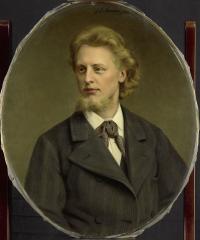
Die lach
Zooals wanneer opeens de zonneschijn
Door ‘t zwart der breede wolken heen komt breken,
En schittert in de tranen, die er leken
Van blad en bloem, als vloeiend kristallijn,
Zóó, dat het weenen lachen schijnt te zijn:
Zoo is, wat mij ontstemt, opeens geweken,
Mathilde! ontsluit úw mond zich om te spreken,
En doolt een glimlach om uw lippen, fijn: –
Doch van den lach is glimlach dageraad,
En klinkt uw lach, hoe drinken hem mijne ooren!
De vreugde vaart door pols en vezel rond. –
En met geloken oog zie ‘k uw gelaat,
Zoo zonnig: ‘k meen uw zilvren lach te hooren,
Wanneer ik roerloos wacht op de’ uchtendstond….
Jacques Perk
(1859 – 1881)
Die lach
• fleursdumal.nl magazine
More in: Archive O-P, Archive O-P, CLASSIC POETRY, Jacques Perk
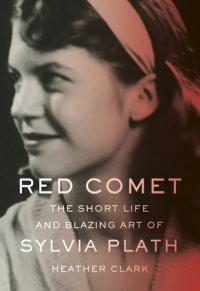 The highly anticipated new biography of Sylvia Plath that focuses on her remarkable literary and intellectual achievements, while restoring the woman behind the long-held myths about her life and art.
The highly anticipated new biography of Sylvia Plath that focuses on her remarkable literary and intellectual achievements, while restoring the woman behind the long-held myths about her life and art.
With a wealth of never-before-accessed materials–including unpublished letters and manuscripts; court, police, and psychiatric records; and new interviews–Heather Clark brings to life the brilliant daughter of Wellesley, Massachusetts.
Sylvia Plath had poetic ambition from a very young age and was an accomplished, published writer of poems and stories even before she became a star English student at Smith College in the early 1950s. Determined not to read Plath’s work as if her every act, from childhood on, was a harbinger of her tragic fate, Clark here evokes a culture in transition, in the shadow of the atom bomb and the Holocaust, as she explores Plath’s world: her early relationships and determination not to become a conventional woman and wife; her conflicted ties to her well-meaning, widowed mother; her troubles at the hands of an unenlightened mental-health industry; her Cambridge years and thunderclap meeting with Ted Hughes, a marriage of true minds that would change the course of poetry in English; and much more.
Clark’s clear-eyed sympathy for Hughes, his lover Assia Wevill, and the other demonized players in the arena of Plath’s suicide promotes a deeper understanding of her final days, with their outpouring of first-rate poems. Along with illuminating readings of the poems themselves, Clark’s meticulous, compassionate research brings us closer than ever to the spirited woman and visionary artist who blazed a trail that still lights the way for women poets the world over.
Heather Clark earned her bachelor’s degree in English Literature from Harvard University and her doctorate in English from Oxford University. Her awards include a National Endowment for the Humanities Public Scholar Fellowship; a Leon Levy Biography Fellowship at the City University of New York; and a Visiting U.S. Fellowship at the Eccles Centre for American Studies, British Library. A former Visiting Scholar at the Oxford Centre for Life-Writing, she is the author of The Grief of Influence: Sylvia Plath and Ted Hughes and The Ulster Renaissance: Poetry in Belfast 1962-1972. Her work has appeared in publications including Harvard Review and The Times Literary Supplement, and she recently served as a consultant for the BBC documentary Sylvia Plath: Life Inside the Bell Jar. She divides her time between Chappaqua, New York, and Yorkshire, England, where she is Professor of Contemporary Poetry at the University of Huddersfield.
Red Comet
The Short Life and Blazing Art of Sylvia Plath
By Heather Clark
Hardcover
1152 Pages
$40.00
Oct 06, 2020
ISBN 9780307961167
Published by Knopf
$40.00
# new biography
• fleursdumal.nl magazine
More in: #Biography Archives, - Archive Tombeau de la jeunesse, - Book Lovers, - Book News, Archive C-D, Archive G-H, Archive O-P, Archive O-P, Plath, Sylvia
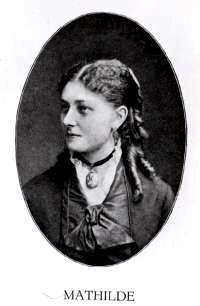
Aan Mathilde
Wanneer de moeder van het licht weêr licht,
En voor heur goud den zwarten mist doet wijken,
Dan laat ze ‘er stralen langs de bloemen strijken,
En dankbaar doet elk bloemeke zijn plicht.
Zoodra de bloem de lieve zon ziet prijken,
Dan wolkt ze wierook op in wolken dicht,
En geurenmoeder wordt het moederlicht…
Ik moet, Mathilde, u aan de zon gelijken!
Gij zijt de moeder van deez’ liederkrans:
Gij hebt dien met uw zonneblik geschapen
In ‘t zwarte hart; zoo ‘t glanst, ‘t is door úw glans.
Met uwe bloemen krans ik u de slapen,
Uw eigen schepping leg ik om uw hoofd;
Zoo zij uw naam voor eeuwiglijk geloofd! –
Jacques Perk
(1859 – 1881)
Aan Mathilde
• fleursdumal.nl magazine
More in: Archive O-P, CLASSIC POETRY, Jacques Perk

To The Sun
Great Phoebus ! thou on whom we all depend
For countless joys which thou alone canst send,
A saturated mortal to thee speaks,
And for an answer to this question seeks —
Where hast thou been through all these sloppy weeks?
Oh ! by sweet thoughts of punt and shade and pipe.
By horrid dreams of Fruit far, far from ripe,
By hopes of pleasures culled throughout the “Long,”
By thoughts of Margate with its ni^er song.
By trips proposed upon the “Continong”;
Shine forth, O mighty Sun ! and turn thy face
On match, regatta, party, pic-nic, race;
Dispel the gloom that o’er our island lowers,
And people all the land with countless flowers,
And let us have at least some rainless hours.
Let Bobbies murmur in the Street of Bow,
And swear that on their beat they will not go:
Let Postmen fill our souls with endless fears
That correspondence may get in arrears :
Let thoughts of striking fill our Grenadiers :
Let all these cease from labour, if they like ;
But thou, great Sun-god, go not thou on strike!
Montague Horatio Mostyn Turtle Pigott
(1865–1927)
To The Sun (Poem)
•fleursdumal.nl magazine
More in: Archive O-P, Archive O-P, Mostyn Turtle Pigott

Iris
Der eerwaarde jonkvrouwe Joanna C. B.
`Ik ben geboren uit zonnegloren
En een zucht van de ziedende zee,
Die omhoog is gestegen, op wieken van regen,
Gezwollen van wanhoop en wee.
Mijn gewaad is doorweven met parels, die beven
Als dauw aan de roos, die ontlook,
Wen de Dagbruid zich baadt en voor ‘t schuchter gelaat
Een waaier van vlammen ontplook. –
Met tranen in ‘t oog, uit de diepte omhoog,
Buig ik ten kus naar beneden:
Mijn lichtende haren befloersen de baren
En mijn tranen lachen tevreden:
Want diep in zee splijt de bedding in twee,
Als mijn kus de golven doet gloren…
En de aarde is gekloofd en het lokkige hoofd
Van Zefier doemt lachend naar voren.
Hij lacht… en zijn zucht blaast, mij arme, in de lucht
En een boog van tintlende kleuren
Is mijn spoor, als ik wijk naar het dromerig rijk,
Waar ik eenzaam om Zefier kan treuren.
Hij mint me als ik hém… maar zijn lach, zijn stem,
Zijn kus… is een zucht: wij zwerven
Omhoog, omlaag; wij wíllen gestaâg,
Maar wij kunnen nòch kussen, nòch sterven. –
De sterveling ziet mijn aanschijn niet,
Als ik uitschrei, hoog boven de wolken,
En de regenvlagen met ritselend klagen
Mijn onsterflijken weedom vertolken.
Dan drenkt mijn smart het dorstende hart
Van de bloem, die smacht naar mijn leed
En met dankenden blik naar mij opziet, als ik
Van weedom het wenen vergeet.
En dán verschijn ik door het ‘t nevelgordijn –
Dat mijn Zefier verscheurt, als hij vliegt –
Somber gekromd… tot de zonneschijn komt
En ‘t rag mijner wieken zich wiegt.
Dán zegt op aarde, wie mij ontwaarde:
“De goudene Iris lacht!”…
En stil oversprei ik vale vallei
Met een gloed van zonnig smaragd. –
Mijn handen rusten op de uiterste kusten
Der aarde als, in roerloos peinzen, –
Eén bonte gedachte – ik mijn liefde verwachtte…
Die mij achter de zon zal doen deinzen. –
‘k Zie ‘s nachts door mijn armen de sterren zwermen
En het donzige wolkengewemel
En de maan, die mij haat en zich koestert en baadt
In de zilveren lach van den hemel. –
Mijn pauwepronk… is de dos, dien mij schonk
De zon, om de stervling te sparen,
Wien mijn lichtloze blik zou bleeken van schrik
En mijn droeve gestalte vervaren.
Nu omspan ik den trans met mijne armen van glans
Tot mij lokt Zefier’s wapprend gewaad,
En ik henenduister naar ‘t oord, waar de luister
Der lonkende zon mij verlaat. –
Ik ben geboren uit zonnegloren
En een vochtige zucht van de zee,
Die omhoog is gestegen, op wieken van regen,
Gezwollen van ‘t wereldse wee. –
Mij is gemeenzaam, wie even eenzaam
Het leven verlangende slijt
En die in tranen zijn Vreugde zag tanen…
Doch liefelijk lacht, als hij lijdt!’ –
Jacques Perk
(1859 – 1881)
Iris
(Gedichten, 1882)
• fleursdumal.nl magazine
More in: Archive O-P, CLASSIC POETRY, Jacques Perk
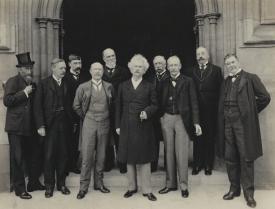
Editors Note
A haggard youth with glittering eye
Into our presence sped;
He placed these verses on our desk,
A pistol at our head.
Well, we didn’t much want to be bored with his
lead.
So our readers we bore with his verses instead.
Montague Horatio Mostyn Turtle Pigott
(1865–1927)
Editors Note (Poem)
• fleursdumal.nl magazine
More in: Archive O-P, Archive O-P, Mostyn Turtle Pigott
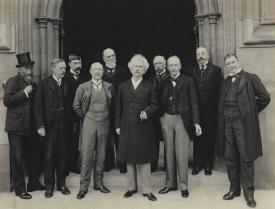
A Lament
They beat me black; they beat me blue,
Until my rue-
-ful visage would not bear inspection;
They broke me, too,
Though ’twas I who
Was once considered quite perfection.
How things are changed ! I once was great,
But yet of late
IVe fallen from my proud position ;
Hard is my fate,
I’m out of date ;
How altered now is my condition !
How will it end? What’s Fate’s decree?
Perchance Til be
Hung high as Haman by a neck-cord ;
Oh ! pity me,
For here you see
A broken, battered, shattered record.
Montague Horatio Mostyn Turtle Pigott
(1865–1927)
A Lament (Poem)
•fleursdumal.nl magazine
More in: Archive O-P, Archive O-P, Mostyn Turtle Pigott
A Little Novel
(in four little chapters)
CHAP. I
A little nook in garden shady;
A little squeeze of finger-tips ;
A little question to a lady;
A little “Yes** from rosy lips.
CHAP. II
A little flirting with another;
A little shadow on a blind;
A little tiff, a little bother:
A little bit of Beauty’s mind.
CHAP. III
A little coolness in the greeting;
A little rift within the lute;
A little hour of wild entreating;
A little lady, proudly mute.
CHAP. IV
A little note of sad upbraiding ;
A little poison in a glass;
A little willow-tree o’ershading
A little tomb-stone in the grass.
Montague Horatio Mostyn Turtle Pigott
(1865–1927)
Melody versus Malady (Poem)
• fleursdumal.nl magazine
More in: Archive O-P, Archive O-P, Mostyn Turtle Pigott

Melody versus Malady
[The Lancet recently discussed the value of music in the
treatment of disease.]
Away with all doctors and physic-concocters !
Down with surgeons and down with physicians !
In future hautboys will replace • doctor’s boys,
And when ailing we’ll send for musicians.
The gentle guitar will soon banish catarrh,
The organ organic diseases ;
The ophicleide serves to establish the nerves,
The mandolin measles appeases.
If you catch influenza just try a cadenza
On the harmless and homely harmonium,
And if you complain of a sprain or a strain
Then summon the soothing euphonium.
Try the cornet for corns and for ague French horns,
And if you should feel very sick or low
Try an air on the lute, a few notes from the flute.
Or the piercing yet popular piccolo.
Montague Horatio Mostyn Turtle Pigott
(1865–1927)
Melody versus Malady (Poem)
• fleursdumal.nl magazine
More in: Archive O-P, Archive O-P, Mostyn Turtle Pigott
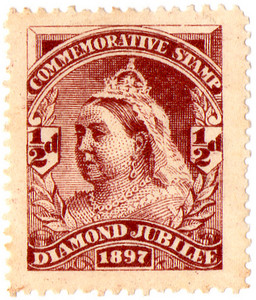
The Philatelist*
(*A man who collects stamps cares for nothing else in the world.)
” O come,” said Music, “come with me ;
To Adelina Patti list;
Melt in her magic melody ” —
“I shan’t !” quoth the Philatelist.
“Come,” said the Gourmand, “come with me.
And try the varied Gatti-list;
I prithee, try Gastronomy” —
“I won’t!” quoth the Philatelist.
” Come,” said the Eightsman, ” come with me”,
And to the merry rattle list;
“Come, join our cheery crew, and we ” —
” Please go!” quoth the Philatelist.
” Come”, said the Farmer, ” come with me”.
And to my lowing cattle list :
“They’re’ slowly winding o’er the lea ” —
” Let them !” quoth the Philatelist.
“Come,” said the Mother, “come with me,
And to my cherub’s prattle list ;
Come, take the babe upon thy knee” —
“No, thanks!” quoth the Philatelist
“Come,” said the Warrior, “come with me,
And to the roar of battle list;
Come, join our valiant company” —
“Not me!” quoth the Philatelist.
“Come,” said Society, “with me,
And to my tittle-tattle list;
“Come, try the World, the Flesh, the D— “
“Get out!” quoth the Philatelist.
Montague Horatio Mostyn Turtle Pigott
(1865–1927)
The Philatelist (Poem)
• fleursdumal.nl magazine
More in: Archive O-P, Archive O-P, Mostyn Turtle Pigott
Thank you for reading Fleurs du Mal - magazine for art & literature